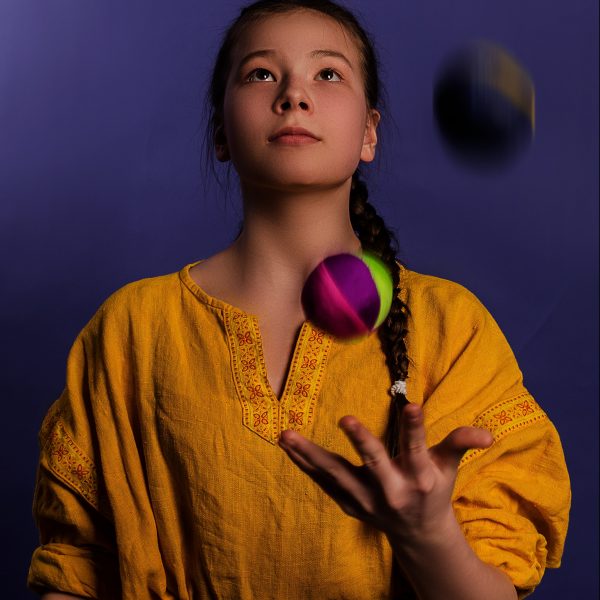Becoming better leaders & more mindful educators through developing self awareness

When making the decision to join the early childhood education and care (ECEC) sector, high quality training with a reputable provider is probably one of the most important elements to consider. Aside from the qualifications though, there are many attributes that make a quality early childhood educator such as respect, empathy, kindness, resilience, passion, commitment & professionalism.
One attribute in particular goes hand in hand with becoming a better leader and having an overall positive effect on the outcomes of your professional life, but is rarely discussed, and that’s the state of self awareness.
In this article I will take you through how self awareness is critical for building leadership skills, how it can help you develop a sustained career in early childhood and how bringing more awareness into your life enhances every aspect of it.
Self awareness
Being aware of the self means that you are able to recognise what is happening within you, why it is occurring and how you can manage it. Developing self awareness involves “insight, reflection, rumination and mindfulness, with the latter in particular attracting extensive attention in recent research”.
As early childhood educators we are very familiar with reflecting on our programs, but rarely take the time to reflect on ourselves and our approaches.
A good way to take a more personal approach to reflection, and in turn to build self awareness is to notice each time a thought enters your head and take a moment to analyse why you just thought that particular way – especially if it is a negative thought. This simple but challenging concept of self reflection is the key to becoming more self aware.
Leadership
The current Diploma of Early Childhood training package offers a couple of core Units of Competency based around reflection on professional practice and leadership skills but doesn’t specifically target personal development. The elective Unit of Competency BSBPEF502 – Develop and use emotional intelligence goes deeper into understanding self awareness.
Given that it is an elective, this important aspect of personal development is overlooked by many Registered Training Organisations who instead choose to focus core training on the early childhood environment instead.
I believe this elective is an important tool in growing an education and care workforce who are able to understand and better relate to many external situations by first developing the understanding of how and why we do what we do.
Below is a brief snapshot of a couple of the relevant core Units of Competency that involve elements of reflective practices & leadership:
- BSBTWK502 – Manage team effectiveness
- CHCPRP003 – Reflect on and improve own professional practice
While these Units of Competency and subsequent skills assist in the development of educator knowledge in regards to their environment they don’t target the state of self awareness.
Leadership ultimately starts with the self. When we are able to prioritise our wellbeing and personal development we are already stepping into a leadership role; we are taking charge of ourselves and prioritising development, both of which are key aspects in becoming an effective leader.
Other great leadership traits include being able to objectively see others viewpoints or cope with challenging situations without being reactive. Both of which are important aspects when working in a team environment or with families.
Having self awareness helps to sustain your career
The intrapersonal skills we develop along our journey into self awareness are transferable across many aspects of our career. Being aware of your thoughts helps you to work through emotions better which often results in a more constructive way of managing challenges in the workplace. We learn to be less reactive and more responsive to the needs of ourselves and others.
When times get really tough, such as when parents are discontent or when we are feeling constantly disrupted by COVID, we can tune into the way we feel in that moment, analyse why we feel that way and work through strategies to help us feel better so we are able to manage the situation effectively.
Some of these strategies involve regulating your nervous system by focusing on your exhalation, releasing muscle tension, giving yourself a positive pep talk or stepping away and coming back when you feel calmer.
The more you develop awareness of what you are thinking and how you are feeling, the more ease you feel when dealing with everyday situations regardless of whether they are complex or simple.
Developing a greater sense of self
Acknowledging, analysing and responding to our thoughts is fundamental in the approach to developing self awareness but there are other ways to tune into the self more that may be simpler for those who struggle with turning inwards.
We are born mindful but lose this state the older we get. You can start this mindful journey again by becoming more observant of your external surroundings and by focusing on awareness from a different perspective you may be able to develop self awareness skills more deeply. Start by noticing the bee buzzing by, the sound of the cars in the distance, the feeling of the sun on your skin or practice being present when someone talks to you. Afterwards, you may ask yourself how you felt during these moments.
This less intrusive way of analysing your thoughts is a great way to start to train your mind in the process of self reflecting.
Self awareness enhances our lives in ways we didn’t realise
Self awareness is a journey into ourselves that brings forth a light hearted approach to life. We begin to tune into a sense of calmness and can find peace with our actions and decisions. We can step back from intense feelings that sometimes cloud our judgement so that we see everyone’s point of view objectively.
This awareness helps to create more in touch leaders, it provides joy in everyday moments and can also change the way we go about our lives. Self awareness is the key to unlocking the door to ourselves as we feel into a sense of expansion as we grow and confidently extend ourselves. With self awareness comes a true sense of knowing who we are and ultimately we become the person that is empowered to be the best we can with authenticity and integrity.
When we are self aware we manage situations from a responsive perspective that empowers us to be fair and reasonable but also allows us to be in control of how we feel and how we manage situations around us.
Part of the self awareness journey for preschool children and educators can be explored and deepened through Yoga Play Programs. Using yoga deepens the mind and body connection which contributes to a greater understanding of who we are. Contact [email protected] for more information.
Popular

Practice
Provider
Quality
Research
Workforce
New activity booklet supports everyday conversations to keep children safe
2025-07-10 09:00:16
by Fiona Alston

Quality
Practice
Provider
Research
Workforce
Honouring the quiet magic of early childhood
2025-07-11 09:15:00
by Fiona Alston

Quality
Practice
Provider
Workforce
Reclaiming Joy: Why connection, curiosity and care still matter in early childhood education
2025-07-09 10:00:07
by Fiona Alston












